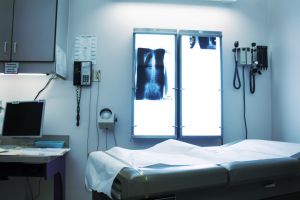Our Boston personal injury lawyers understand that the need to prove both liability and damages separately can be confusing to plaintiffs.
 Metzler v. BCI Coca-Cola Bottling, decided by the Supreme Court for the State of Arizona, involved a plaintiff who was shopping at a grocery store in Tucson. While in the store, she slipped on water that was leaking from a refrigerator. The refrigerator was not owned by the store; rather, a soft drink company that had placed the refrigerator in the store owned it.
Metzler v. BCI Coca-Cola Bottling, decided by the Supreme Court for the State of Arizona, involved a plaintiff who was shopping at a grocery store in Tucson. While in the store, she slipped on water that was leaking from a refrigerator. The refrigerator was not owned by the store; rather, a soft drink company that had placed the refrigerator in the store owned it.
The personal injury suffered by the plaintiff was severe, and she made an offer to settle the case for $150,000. The defendant rejected the case, and it went to trial. The jury found that the defendant was responsible for the plaintiff’s injuries and awarded her a verdict in the amount of $1.5 million.
After trial, the court entered a judgment in the amount of $1.5 million in damages and an additional amount of just under $300,000 in pre-judgment interest. The defendant moved for a new trial on both damages and liability. The judge granted the motion on the issue of liability but not on damages. The defendant and the plaintiff appealed this decision by the judge.
In a negligence action, the plaintiff must prove that the defendant owed a duty of care to protect the plaintiff or their property from foreseeable harm and that they breached this duty of care. The breach of the duty of care must have caused an injury to the plaintiff both actually and proximately. If your Boston personal injury lawyer can establish that a duty existed, and that a breach of that duty caused an injury to the plaintiff, this will satisfy the issue of liability.
Once liability has been proven, the next issue before the jury is proof of damages. Damages is the legal term for the financial loss to the plaintiff. It may be found in terms of pain and suffering, lost wages, hospital bills, future medical expenses, and other “special” damages. The plaintiff’s attorney will present evidence to the jury in an attempt to prove the amount of damages.
In a personal injury action, the jury must decide both liability and damages. After trial, the parties can file a motion with the court to reverse one or both of these jury findings. In Metzler, the defendant asked the court to reverse the jury on both liability and damages. The judge reversed on liability, but not damages, and ordered a new trial. In other words, a new jury will decide whether the refrigerator owner owed a duty of care to the plaintiff. If so, the jury must determine whether they breached that duty of care and whether the breach of their duty of care caused the plaintiff’s injuries.
On appeal, the court concluded that the judge’s decision to grant a new trial on liability was improper and reversed the ruling. With respect to damages, the appeals court looked at whether the pre-judgment interest was appropriate. The court ultimately concluded that there was an error in the percentage used in the calculation and remanded the case for further proceedings.
If you are injured in an accident in Massachusetts, call Jeffrey Glassman Injury Lawyers for a free and confidential appointment — (617) 777-7777.
Additional Resources:
Metzler v. BCI Coca-Cola Bottling, July 11, 2014, Arizona Supreme Court
More Blog Entries:
Wilkins v. City of Haverhill – Massachusetts Supreme Court Weighs Slip-and-Fall Claim, May 23, 2014, Boston Personal Injury Attorney Blog
 Boston Personal Injury Attorney Blog
Boston Personal Injury Attorney Blog

